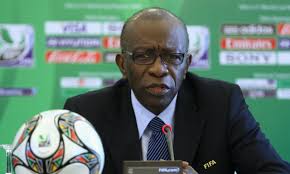By Andrew Warshaw
June 8 – For years, amid constant claims of his involvement in widespread corruption and bribery stretching back to the Mohamed bin Hammam cash-for-votes affair and before, Jack Warner, FIFA’s notorious former vice-president, has never admitted he has done anything wrong.
Emerging unscathed from the current allegations regarding the already-infamous $10 million paid to him by the South African authorities via FIFA – a solicited bribe according to US prosecutors – is surely his greatest challenge yet.
The BBC has now produced photographic evidence which it claims details exactly what happened to the $10 million sent to accounts controlled by the ex-CONCACAF boss.
The money, sent on behalf of South Africa, was meant to be used for its Caribbean diaspora as part of its 2010 World Cup legacy programme. The Caribbean forms a large part of CONCACAF but the documents suggest Warner diverted it for cash withdrawals, personal loans and credit card payments.
Warner is among nine current and former FIFA officials and five corporate executives charged by the U.S. Department of Justice with running a criminal enterprise that involved more than $150 million in bribes.
“The papers seen by the BBC detail three wire transfers by FIFA,” the BBC report said. “In the three transactions – on 4 January, 1 February and 10 March 2008 – funds totaling $10 million from FIFA accounts were received into CONCACAF accounts controlled by Jack Warner. The documents reveal how the money was spent and moved around.”
As usual Warner, a central figure in FIFA’s deepening scandal, denies all claims of wrongdoing and instead says he will soon spill the beans on everyone else involved. Last week, in a paid political address in his homeland of Trinidad and Tobago, entitled ‘The gloves are off’, he vowed to tell investigators all he knew about corruption within FIFA.
Warner, like others charged, is fighting extradition to the United States where, if he is found guilty, he could spend several years in jail. He is currently on bail in Trinidad after he was indicted by over allegations of racketeering, wire fraud and money-laundering spanning two decades.
Trinidad authorities say the legal complexities make it unlikely Warner, whose two sons have already pleaded guilty to a variety of offences, would be extradited any time soon.
But Brent Sancho, Trinidad and Tobago’s sports minister, told the BBC that Warner, who resigned from FIFA four years ago after being caught up in the Caribbean cash-for-votes scandal, had “dodged the bullet” for too long.
“He must face justice, he must answer all of these questions. Justice has to be served. He will have to account, with this investigation, he will have to answer for his actions.
“I’m devastated because a lot of that money should have been back in football, back in the development of children playing the sport.
FIFA insisted last week in the wake of Sepp Blatter’s resignation announcement that neither secretary general Jerome Valcke, to whom the South African letter was sent, nor any other member of FIFA’s senior management was “involved in the initiation, approval and implementation” of the $10 million payment.
But Blatter himself has now been linked for the first time to the $10 million payment to CONCACAF, according to an email seen by Britain’s Daily Telegraph newspaper. The paper says Blatter personally discussed the payment with Thabo Mbeki, the then South African President.
A spokeswoman for FIFA quickly responded by insisting this did not prove that Blatter was involved.
“It is simply referring to an update given by the then President of South Africa to the FIFA President about the South African government’s formal request,” she said. “That constitutes information, not involvement. As previously stated and confirmed by the South African authorities, this programme was initiated by the South African government for the Caribbean and it was publicly announced by them at the time.”
In a lengthy statement on Sunday, the South African Football Association, whose representatives were not present at last week’s government press conference denying the bribe allegations, once again insisted that the payment had been made in good faith and not in return for CONCACAF’s vote in 2004. “It is a shame that this noble effort to support football development has now been turned on its head and camouflaged as a bribe rather than recognising the good that it was intended to deliver to the football programmes of CONCACAF,” it said.
Contact the writer of this story at moc.l1745039841labto1745039841ofdlr1745039841owedi1745039841sni@w1745039841ahsra1745039841w.wer1745039841dna1745039841

